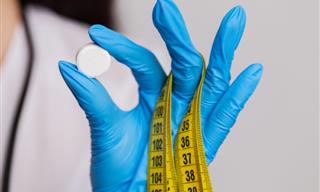Donating blood saves lives – we’ve all heard this before. But let’s check some facts that back this claim. According to the American Red Cross, one blood donation can save as many as three lives, and someone in the U.S. requires a blood transfusion every two seconds. Every year, millions of lives are saved because of blood donations and blood products. Donating blood can help people injured in accidents, as well as those undergoing cancer treatment and battling blood diseases.
The World Health Organization (WHO) further explains:
“A decision to donate your blood can save a life, or even several if your blood is separated into its components — red cells, platelets, and plasma — which can be used individually for patients with specific conditions.”
Unfortunately, while donating blood provides a lifesaving gift, it can be an intimidating task for some people. Misunderstandings or misconceptions about the process make people more reluctant. So, today, we will bust some common myths about blood donation to ease people’s minds about donating.
Related: The Most Important Things You Need to Know About Your Blood
Myth 1: If I donate blood, I won’t have enough left in my own body

Blood donation is safe, and any healthy individual who donates will remain healthy afterward. Doctors do recommend that people rest for a day and drink fluids after donating. After about 48 hours, your body will replace the lost blood volume. In about four to eight weeks, your body will completely replace the red blood cells you donated.
Some people might experience adverse effects such as weakness, dizziness, or lightheadedness after donating. But doctors say these symptoms go away on their own. Just make sure to drink some fluids and have a light snack afterward.
Myth 2: Seniors can’t donate blood

This isn’t true. The American Red Cross says that people who are older than 16 years and weigh more than 110 pounds (50 kilograms) are eligible to give blood. They also state that there’s no upper age limit for blood donation as long as someone is healthy and has no restrictions or limitations to their activities. These rules do differ in some countries. In the United Kingdom, for instance, donors must be aged 17–66 years.
According to WHO, some countries allow regular donors over the age of 65 to give blood at the discretion of a responsible physician.
Related: This New Clinic is Infusing Seniors With Young Blood
Myth 3: I take medication, so I can’t donate blood
In almost all cases, medications won’t disqualify you from donating blood. According to the American Red Cross, a donor’s eligibility will be based on the reason that the medication has been prescribed. If you are healthy and your condition is under control, then blood donation is likely to be permitted.
Herbal remedies, nutritional supplements, and over-the-counter oral homeopathic medicines are permitted too. Read the complete breakdown of medications that affect donation eligibility on the American Red Cross website.
Myth 4: I might contract dangerous infections if I give blood

Doctors say that there is no risk of catching an infection when donating blood. A new sterile needle is used with each new blood donation and immediately discarded. Therefore, there’s almost no chance of catching a bloodborne infection from donating blood if the hospital you are donating blood at follows all the rules.
Myth 5: You can’t donate if you’ve had COVID-19

Just because you’ve had COVID-19 in the past doesn’t mean that you won’t be able to donate blood in the future. Health experts say that donors have to be free of any symptoms for at least two weeks. If you're currently recovering from COVID-19 or are displaying COVID-like symptoms, don’t attempt to donate blood. You should be resting and isolating.
Myth 6: You can only give blood once each year
This is false. As we mentioned earlier, blood cells take up to eight weeks to be replenished. After that, it’s safe to donate blood again. The American Red Cross says that you can donate whole blood every 56 days up to 6 times a year.
Myth 7: Blood donation is time-consuming

According to the American Red Cross, the donation of a pint of whole blood takes from 8 to 10 minutes. Registration and processing times vary, but they typically take somewhere between 30 and 60 minutes. After registration, you’re usually required to answer some questions about your health and travel history. This is followed by a brief physical examination to determine if you’re eligible to donate blood. That’s it.
So if you’re planning to donate blood, don’t be hesitant thinking it will take a long time. It won’t.
Myth 8: You cannot donate if you have high blood pressure or high cholesterol

Having high blood cholesterol levels won’t disqualify you from donating blood as long as you're otherwise healthy.
Also, you can donate blood if your blood pressure is below 180 systolic (first number) and below 100 diastolic (second number), says the American Red Cross. Even medications for high blood pressure won’t disqualify you from donating. The Red Cross provides a detailed list of the eligibility criteria for donating blood.
Related: Lower Your Blood Pressure Naturally With These Foods
Myth 9: Enough people donate blood. There’s no need for me to do so

Sadly, this isn’t true. Blood has a limited shelf life and can’t be manufactured outside of the human body. Donated red blood cells have a shelf life of up to 42 days, while donated platelets must be used within 5 days. Therefore, the supply must constantly be replenished, and there is always a need for more blood donors.
Statistics show that only about 37 percent of the U.S. population is eligible to donate blood - less than 10 percent of these potential donors give blood regularly. Blood banks can, at times, have a critical shortage of some blood types. Earlier this year, the United States had a national blood shortage during the COVID-19 pandemic. So if you’re eligible, it’s always a good idea to roll up your sleeves and spare an hour to give blood.
Share this post with your loved ones...
 Go to BabaMail
Go to BabaMail






























